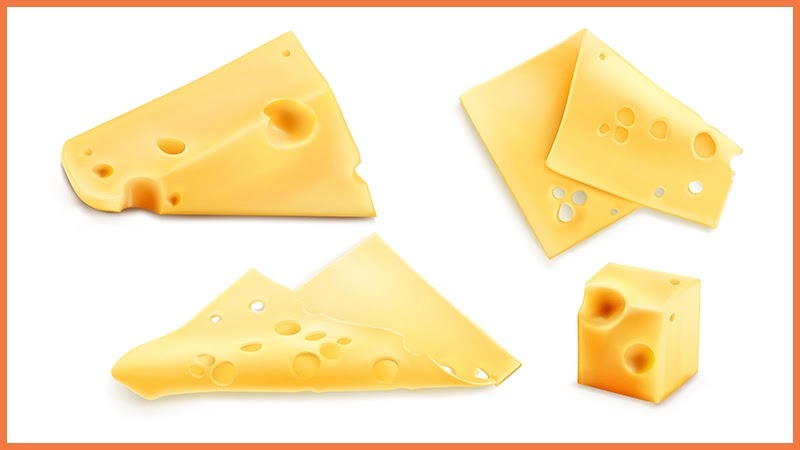These 10 Foods You Eat That Are Bad for Your Health and Your Budget
We all have busy schedules, so it can be challenging to remember to eat a balanced diet. Sometimes it's simpler to simply grab food off the shelf while ignoring its nutritional value in favor of convenience. Because processed foods are always available, producers profit greatly from them. And they have previously helped us save time and effort. At what price, though?
From Coke to Twinkies, many of the items on this list are essentials in our daily diet. However, they can cause long-term health issues if not consumed in strict moderation (or entirely avoided). Even though some of these products are obviously harmful, they continue to be sold because they are profitable. Others are less obvious but can have negative side effects if consumed in large quantities.
1. Diet Coke
Coca-diet Cola's version positions itself as a healthy substitute. In any case, it is sugar-free! It also contains no calories. It's frequently been the preferred beverage for dieters worldwide. Diet Coke is safe to drink in moderation, according to the Mayo Clinic, but individuals who consume more than one can per day run the risk of suffering significant consequences.
Studies have revealed that Diet Coke isn't actually all that "diet," claims Healthline. Due to their acidic pH levels, artificial sweeteners can cause chronic kidney disease, tooth decay, osteoporosis, depression, and heart disease, as well as increase the risk of these conditions. To be absolutely certain, more research is required, but you might want to reduce or completely avoid your intake of Diet Coke.
2. Hot Dogs
In addition to animal meat, hot dogs also contain a variety of other ingredients. One of them is maltodextrin, which can harm the intestines and stomach if consumed in excess.
A serving of hot dogs also contains 33 percent of the daily recommended sodium intake. Not only that, but hot dogs frequently list "poultry meat" as one of their ingredients, a vague term that casts doubt on the actual source of the meat they contain. Given this, it is surprising how many of these are offered for sale at establishments like Kroger each year.
3. Breakfast Sandwiches
It might be tempting to grab a breakfast sandwich from a fast food joint like McDonald's, Starbucks, Dunkin' Donuts, or Tim Horton's right away. And there's no denying how delicious these sandwiches are. However, consuming one every day might be seriously harming your body.
The high cholesterol content of breakfast sandwiches isn't a problem if you have one every now and then. The Nutrition Twins claim that eating a fast-food breakfast sandwich three times a week can result in weight gain of eight pounds per year due to the sandwich's three hundred extra calories that you wouldn't otherwise consume if you stuck to cooking at home. Doesn't it make you reconsider that McMuffin from McDonald's?
4. American Cheese Slices
Packaging for imitation cheese frequently contains errors. These products contain vegetable oils, trans fats, flavorings, and preservatives instead of the milk fat and other ingredients that are used to make regular cheese.
Imitation cheeses are significantly less healthy than real cheeses due to all of these ingredients. Imitation cheeses are easy to spot among other things because of how much less expensive they are than genuine cheese. There are numerous companies, including Kraft and Whitehall, that market comparable goods.
5. Commercial Salad Dressings
Although many vegetables don't taste particularly good on their own, they are extremely healthy. Even the most extravagant salad will be a little boring without dressing. And that's all right, but you might want to avoid bottled salad dressings.
Many of them are laden with unhealthy ingredients like sugar, trans fats, and vegetable oils. They frequently include synthetic chemicals as well. The salad's health benefits are diminished by these unhealthy ingredients. Try making your own salad dressing instead using vinegar, olive oil, and a little salt and pepper. Spend more time studying the label the next time you shop at Costco.
6. Hostess Cupcakes
Although Hostess Cupcakes are a delicious dessert, you will feel very unsatisfied with their nutritional value. The amount of sugar in one package of Hostess Cupcakes is almost three times the daily recommended amount.
High fructose corn syrup is an additional component that can aid in the onset of metabolic syndrome or high blood pressure. In addition to other nasty diseases, this product's excessive consumption can also result in obesity, diabetes, and fatty liver. Like many other snack foods, the hostess should be eaten in moderation.
7. Gummy Bears
Just 0.2 pounds of gummies make up each bag of Gummy Bears. This tiny quantity, though, conceals the equivalent of 12 teaspoons of sugar. This is two to three times the amount that kids should consume daily.
Gummy Bears contain artificial ingredients like petroleum-based dyes, which can contribute to the emergence of issues like attention deficit or hyperactivity. These risks are in addition to the dangers associated with consuming excessive amounts of sugar. Even though a pack of Haribo from Walmart might only cost you a few dollars, is it really worth it?
8. Instant Ramen
Because Maruchan Soup costs only thirteen cents a packet, it is a very popular meal. Additionally, preparation is incredibly simple. However, a serving of this soup won't do much to fill you up due to its low fiber content.
Maruchan Soup also contains a lot of sodium—each container contains half the daily recommended amount. Regular use of this product can result in illnesses like high blood pressure and high cholesterol, among others.
9. Wonder Bread
Making practical lunches to bring to work or school requires Wonder Bread. Additionally, each loaf only costs a little over a dollar. But the fact that this product can become addictive is one of the reasons it is used so frequently.
This is so because sugar, which aids in bread's fermentation process, is present in it. Additionally, Wonder Bread contains fat and salt, both of which are unhealthy in excess. Additionally, there isn't much fiber in the bread, so it won't fill you up very much.
10. Pancakes
Pancakes are not particularly healthy, despite being one of both children's and adults' favorite breakfast foods. To begin with, they frequently contain high levels of salt and preservatives, which should be avoided in a balanced diet.
Additionally, trans fats, which raise the risk of cardiovascular diseases, are commonly found in them. Additionally, some of them contain partially hydrogenated soybean oil, which is not among the healthiest fats available. But let's be honest, who among us actually believed that frequenting IHOP was good for our health?



